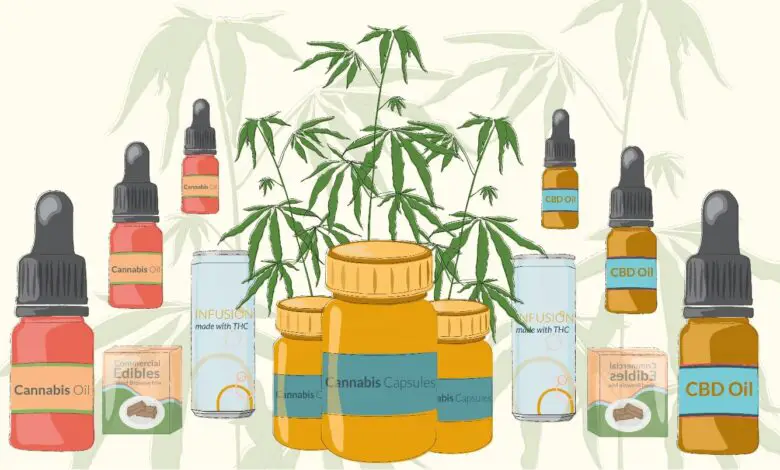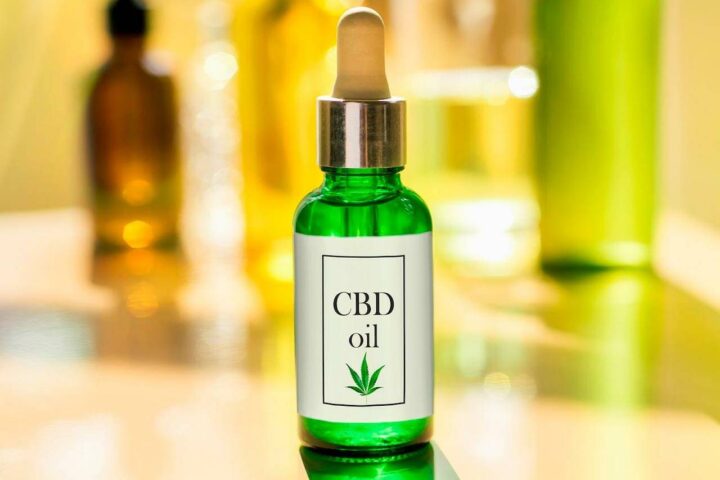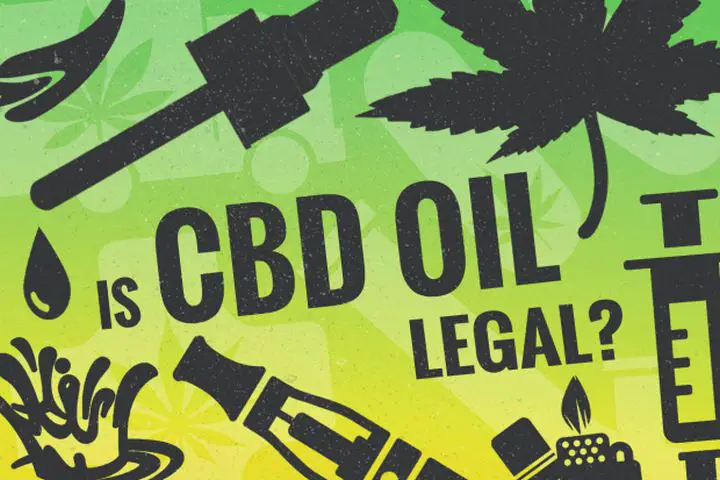What are the Different Types of CBD Oil?

There are many different types of CBD oil that you can now choose from. Additionally, you can now consume and apply it in many ways depending on the form you are using. With the industry’s trends, you may sometimes find it hard to keep up with the latest. It can also be difficult to find the right CBD oil for your needs. It’s important to understand these differences and not fall prey to those companies using the same terminology but giving a completely different product that won’t work for you. Luckily, we are here to help you understand the various types of CBD oil and guide you through this growing industry and help you find the best and most effective CBD oil for your needs.
What Is CBD Oil?

CBD (Cannabidiol) is one of the over 100 chemical compounds found in cannabis plants. CBD is a cannabinoid and the second most plentiful compound found in marijuana after THC. In contrast with THC, CBD is non-psychoactive, which means it will not get you high. This is because CBD does not affect the same receptors as THC does.
CBD oil has become quite popular recently as it has shown high potentials in reducing a wide range of health complications. CBD has long been known to have anticonvulsant properties, which means you can use it to help control seizures and other types of convulsive disorders. It’s even been shown to have neuroprotective effects in animal models, which are helpful for patients with epilepsy and Parkinson’s disease.
Different Types of CBD Oil
The best CBD oils are made from hemp, an organic plant containing no more than 0.3% THC. When you shop for CBD oils online, you’ll find different types of CBD spectrum oil.
1. Full-Spectrum CBD Oil

Full-spectrum products contain other compounds found within the plant, including THC (below 0.3% – the legal amount), terpenes, and essential oils. The benefit of this option is that it takes advantage of the entourage effect of cannabinoids, which is the notion that cannabinoids work better together than on their own. Make sure to choose full-spectrum CBD oil from reputable manufacturers available online.
2. Broad-Spectrum CBD Oil
Broad-spectrum options are similar to full-spectrum options in that they contain other compounds found within the cannabis plant — however, they don’t contain THC. This makes them particularly appealing to those who want to avoid even trace amounts of THC for legal or personal reasons.
3. CBD Isolate
This form of CBD oil only contains isolated cannabidiol. All other cannabinoids, terpenes, and compounds are removed during extraction. This type of CBD oil is ideal for people who want to take CBD or use it topically without feeling the effects of THC.
Why Do People Use CBD Oil?

There are many reasons why people use CBD oil, but it can be helpful to understand the effects CBD provides. Here are a few ways that CBD oil can help you and your wellbeing:
- Chronic Pain Relief: One of the most common use cases of CBD is pain relief and management. With effective pain relief, you can live your day-to-day life without lingering discomfort.
- Anxiety Relief: Anxiety often comes from an inability to relax and focus on the things that matter most. CBD has showed potential in natural stress relief so you can approach every challenge with a calm mind and an open heart.
- Sleeping Aid: Insomnia is a common complaint for many people, especially those who suffer from anxiety or chronic pain. CBD oil can help you fall asleep faster and stay asleep longer with regular use.
CBD Oil Safety and Side Effects
CBD is an amazing supplement with many benefits to our health, but it does have some known side effects that you should be aware of.
The most common side effects include:
- This is one of the most common side effects of CBD, especially when taking it in high doses.
- Many people experience diarrhea after taking large doses of CBD oil. This is due to the substance interacting with the digestive system.
- Changes in appetite. CBD oil could make you feel hungrier than usual, which is a common effect of most cannabinoids.
- Fatigue. If your CBD oil causes you to feel tired or sleepy, this could be a sign that you need to lower your dose.
CBD can also interact with other drugs you’re taking, such as blood thinners. Another cause for worry is the untrustworthiness of the pureness and quantity of CBD in products. Recent research of 84 CBD products purchased virtually revealed that more than a quarter of the products enclosed a smaller amount of CBD than branded. In addition, THC was found in 18 products. If you need to use CBD products, talk to your physician first to recommend a CBD oil product that will work with your body.
Is CBD Oil Legal?

Hemp cultivation and production were strictly forbidden in the United States after the 1937 Marihuana Tax Act. During those dark times, growing cannabis was a crime punishable by fines and imprisonment.
This all changed with the 2018 Farm Bill, allowing farmers to grow hemp under a state-approved plan. This groundbreaking legislation opened the door for many CBD oils, extracts, and other products to hit the mainstream market. While it didn’t legalize CBD on a federal level, it did remove it from Schedule I drug status. Hemp production was legalized in all 50 states. This means that hemp-derived CBD oil is legal to buy and use in all 50 states.
However, this doesn’t mean you can use CBD to get “high” for recreational purposes. The bill states explicitly that all hemp products must contain less than 0.3% THC, which is the quantity of the psychoactive cannabinoid known for its intoxicating effects.
Final Thoughts
We hope that we have provided a good rundown of the different types of CBD oil. With the growing interest in CBD oil products, it is no surprise that many other companies are offering these products. While this may seem like an excellent thing for struggling families who could benefit from the healing properties of cannabis, many unscrupulous companies are trying to cash in on this trend without any safety concerns. If you’re considering purchasing CBD oil, always choose CBD oil from a reputable manufacturer
